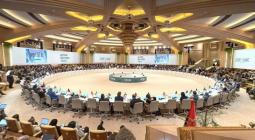African scientists are worried about a different demographic explosion
African countries face a sharp increase in dementia cases due to longer life expectancies and healthcare systems that are inadequately resourced to treat the growing number of elderly patients, scientists have warned.
Dementia, which describes a loss of brain function such as thinking and remembering, already impacts millions of elderly individuals and their families on the continent, but it should not be seen as a normal part of aging, caution experts.
Africa, which is often recognized for its young population with a median age of 19, is also home to the fastest-growing elderly population in the world, according to the UN. Now, with the continent’s population living longer than before, age-related diseases like dementia are becoming more common, says the World Health Organization. The healthy life expectancy in Africa jumped by 10 years per person between 2000 and 2019, a greater rise than in any other region in the world during the same period.
Yet, research on dementia in Africa accounts for only 0.1% of the continent’s overall research output, according to an Aga Khan University’s study. This, combined with a focus on higher profile non-communicable diseases like cancer, leaves many dementia patients undiagnosed or in majority of the cases, diagnosed too late.
The biggest challenge for dementia detection and management in Africa stems from outdated technologies, insufficient research and poor data, said Dr. Zul Merali, the director of the Brain and Mind Institute at Aga Khan University in Nairobi. “We have not been measuring dementia properly,” said Merali. “We have been measuring when people come to the clinics and when they come, they already are very symptomatic and they know that something is wrong.”
Many African countries lack widespread epidemiological studies or national registries for key non-communicable diseases. For example, early detection technologies, such as advanced brain imaging and blood biomarkers that are used in developed countries are not widely available in Africa. Most neurologists on the continent have to work with outdated tools, which further delays diagnosis and treatment, especially in rural areas where access to specialized clinics is especially limited.
To address this crisis, the Davos Alzheimer’s Collaborative, a global initiative working toward a cure for Alzheimer’s, and the Aga Khan University Brain and Mind Institute hosted a conference in Nairobi this month to highlight the growing burden of non-communicable diseases in Africa. Speakers said unlike conditions such as cancer, high blood pressure, and diabetes, dementia is receiving very little attention.
Cover photo: By Alzheimer's Disease International



